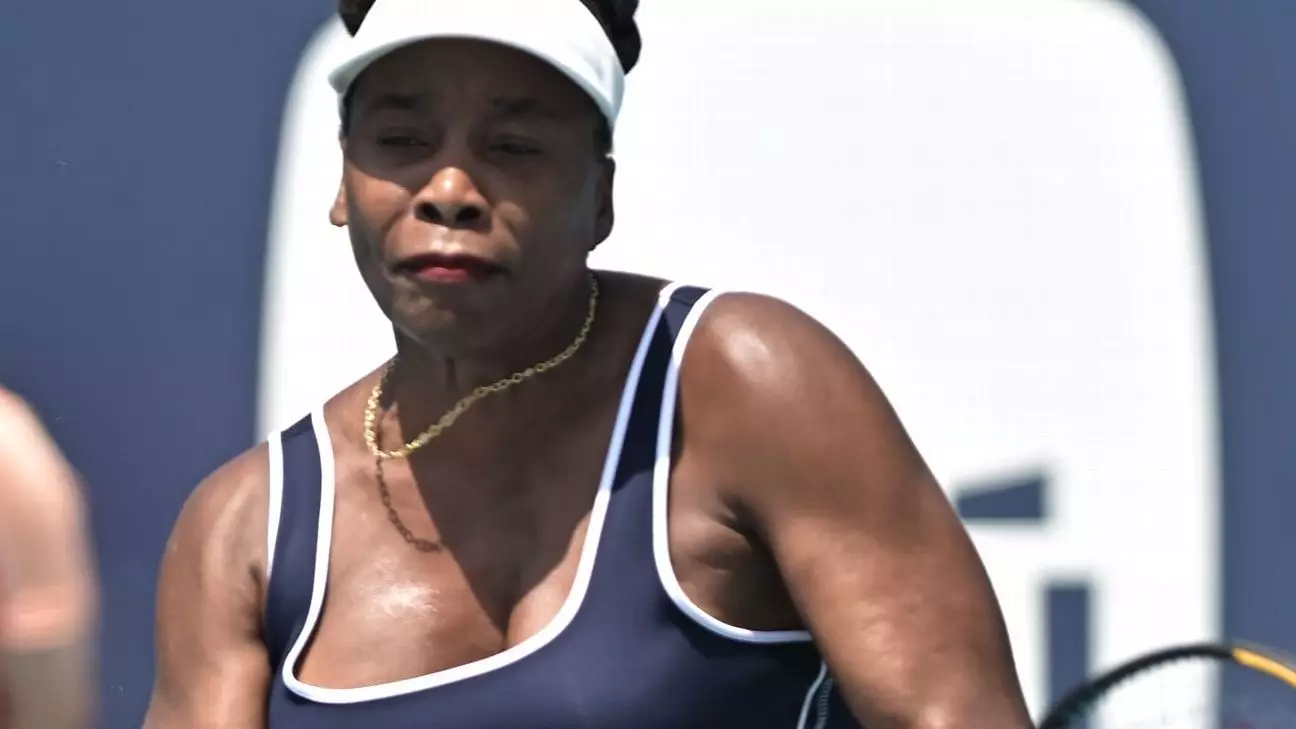The tennis world recently buzzed with anticipation when it was announced that Venus Williams, a former world No. 1 and a celebrated figure in women’s tennis, would be participating in the BNP Paribas Open. Set to commence on March 2 in Indian Wells, California, the tournament appeared to be a significant opportunity for the 44-year-old Williams, marking her potential return to high-level competition after nearly a year. However, during an event in Denmark, she publicly stated her withdrawal, leaving many fans and sports analysts in disbelief.
Williams took to the stage at the Arena Næstved, where she addressed her audience directly regarding the swirling rumors about her participation in the tournament. With a mix of humor and candor, she remarked, “Actually, I found the announcement super amusing… I’m not playing.” This statement revealed a mismatch between the tournament’s promotional efforts and her personal commitments, shedding light on the often-complex balance athletes navigate between public expectations and personal obligations. The fact that she learned about her wild card from the media, rather than her team, underlines the communication gaps that sometimes occur in professional sports.
The Implications of Recent Performances
Venus Williams, known for her remarkable achievements on the court—including seven Grand Slam singles titles—has faced numerous challenges in recent years regarding her performance and participation. Her last competitive appearance was at the Miami Open in 2023, after which she participated in merely two events in 2024, leading to mixed results and an unsettling ranking of No. 974 in the world. This decline prompts deeper discussions about her long-term future in professional tennis. Are her sporadic appearances indicative of a gradual retirement, or is she laying the groundwork for a strategic comeback?
The conversation surrounding Williams also highlights a crucial aspect of sports—the well-being of the athlete. As she shared her decision not to partake in the BNP Paribas Open due to pre-existing commitments, it is essential to recognize the rigorous demands that elite athletes often face. Balancing physical health, mental resilience, and external pressures is crucial, especially for seasoned players like Williams who have devoted decades to the sport. Her decision, while disappointing for her admirers, reflects a thoughtful approach to her personal and professional life.
Looking Ahead to the Future
While Williams’ absence from the Indian Wells tournament may seem like a setback, it may also represent a pivotal moment in her journey. With the foundation she has built, including a legacy that influences both players and fans, the future remains promising for her, whether in competitive play or furthering her involvement in tennis through mentorship, advocacy, or coaching. As the tennis world evolves, so too does the role of athletes like Williams. It raises the question: how will the next chapter of her career unfold, and what contributions will she make to the sport she has so passionately represented?
Venus Williams’ unexpected announcement not only highlights the uncertainties surrounding athletic careers but also underscores the importance of self-care and authentic choices for athletes navigating their paths. As fans await her next move, it is clear that her legacy extends beyond wins and losses and into the very fabric of the sport itself.

